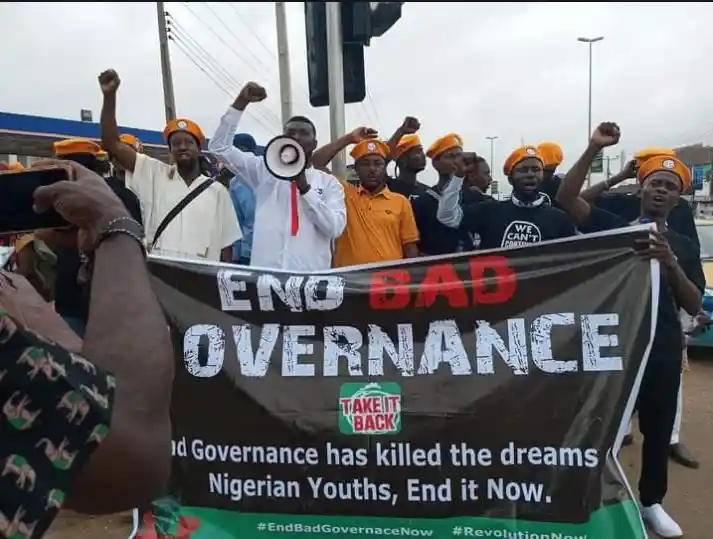Nationwide Protest Planned Against Emergency Rule in Rivers State, Cybercrime Act
- Advertisement -
A nationwide protest has been announced for April 7, 2025, in response to President Bola Tinubu’s declaration of emergency rule in Rivers State and the alleged misuse of the Cybercrime Act to suppress activists, journalists, and social media influencers. The protest is being organized by the Take-It-Back (TIB) Movement, a group that previously played a major role in the #EndBadGovernance demonstrations.
Protest Against Emergency Rule and Cybercrime Act
A flyer circulating on social media, particularly on X (formerly Twitter), calls for a “Nationwide Protest Against Bad Governance and Free Speech Suppression,” urging supporters to converge at the National Assembly in Abuja and other locations across Nigeria.
Speaking to journalists, the National Coordinator of the TIB Movement, Juwon Sanyaolu, stated:
- Advertisement -
“Our primary demand is the repeal of the Cybercrime Act, which has been used to suppress free speech. Journalists and activists have been victims of this law, facing arrests and harassment for their opinions online.
He also condemned the emergency rule imposed in Rivers State, calling it a “military-style takeover” and demanding the reinstatement of Governor Siminalayi Fubara and the Rivers State House of Assembly.
Background: Rivers State Emergency Rule
President Tinubu declared a state of emergency in Rivers State on March 18, 2025, following political conflicts between Governor Fubara and the Rivers State House of Assembly, which is loyal to former governor Nyesom Wike.
- Advertisement -
Under the emergency rule:
- The governor, deputy governor, and state lawmakers were suspended for six months.
- A sole administrator was appointed to oversee the state’s affairs.
- The federal government cited concerns over pipeline vandalism and political instability.
The National Assembly approved Tinubu’s decision, but critics, including civil society groups and opposition politicians, argue that the move violates Nigeria’s constitution.
Cybercrime Act: A Tool for Suppression?
The Cybercrime Act of 2024 has been widely criticized for allegedly being used to target activists, journalists, and social media users. Some individuals who have been affected include:
- Advertisement -
| Name | Role | Charges Under Cybercrime Act |
|---|---|---|
| Segun Olatunji | Former Editor, First News | Spreading false information |
| Daniel Ojukwu | Journalist, FIJ | Online defamation |
| Dayo Aiyetan | Executive Director, ICIR | Alleged misinformation |
| Nurudeen Akewushola | Investigative Journalist | Social media disinformation |
Police authorities have denied any political bias, stating that only those who engage in fake news, defamation, and misinformation have been prosecuted.
Reactions to the Planned Protest
The upcoming protest has sparked mixed reactions:
- Supporters of the protest argue that the emergency rule is unconstitutional and that the Cybercrime Act is being weaponized to silence dissent.
- Government officials and security agencies have warned against any disruption of public order, stating that law enforcement will prevent violence and arrest troublemakers.
The Nigerians in Diaspora Association (NDA-USA) has also condemned the emergency rule and threatened to organize protests across the United States to raise international awareness.
What Happens Next?
With tensions rising, all eyes are on April 7, when the #EndBadGovernance movement plans to take to the streets. As the Nigerian government defends its policies, protesters continue to call for an end to what they describe as authoritarian governance and suppression of free speech.
- Advertisement -
Will the protests lead to policy changes, or will authorities crack down on demonstrators? The coming days will be crucial in determining the future of governance and civil rights in Nigeria.
- Advertisement -


